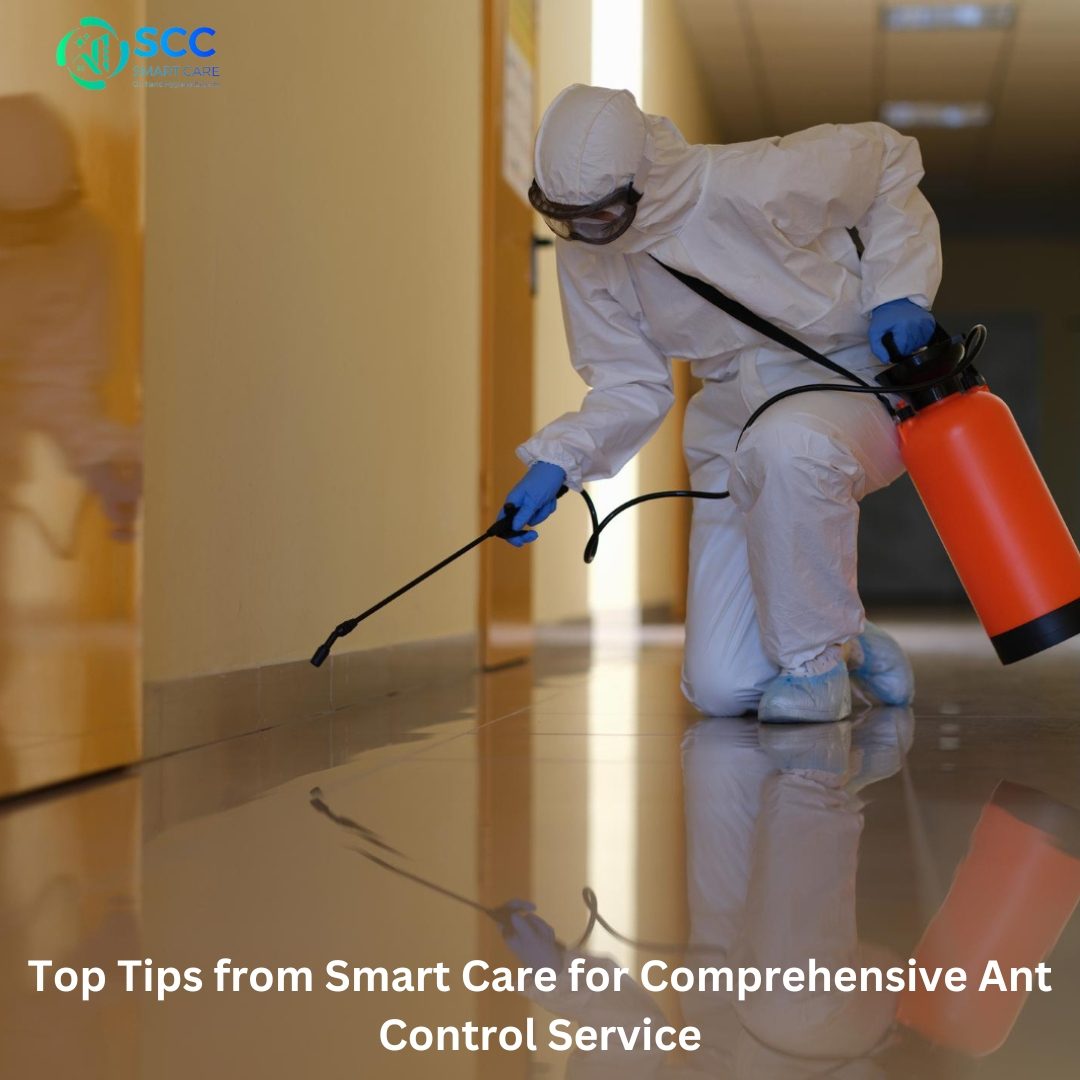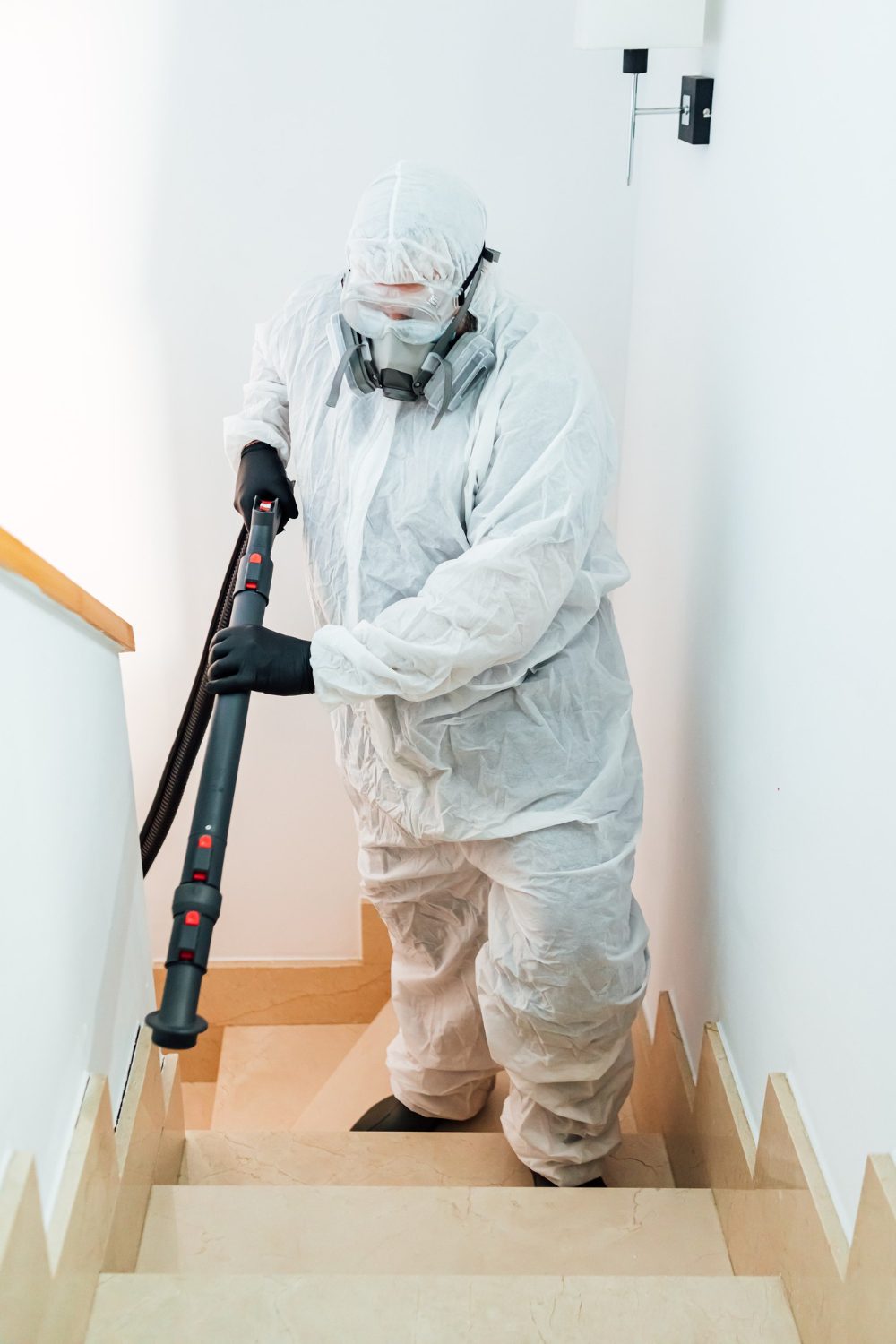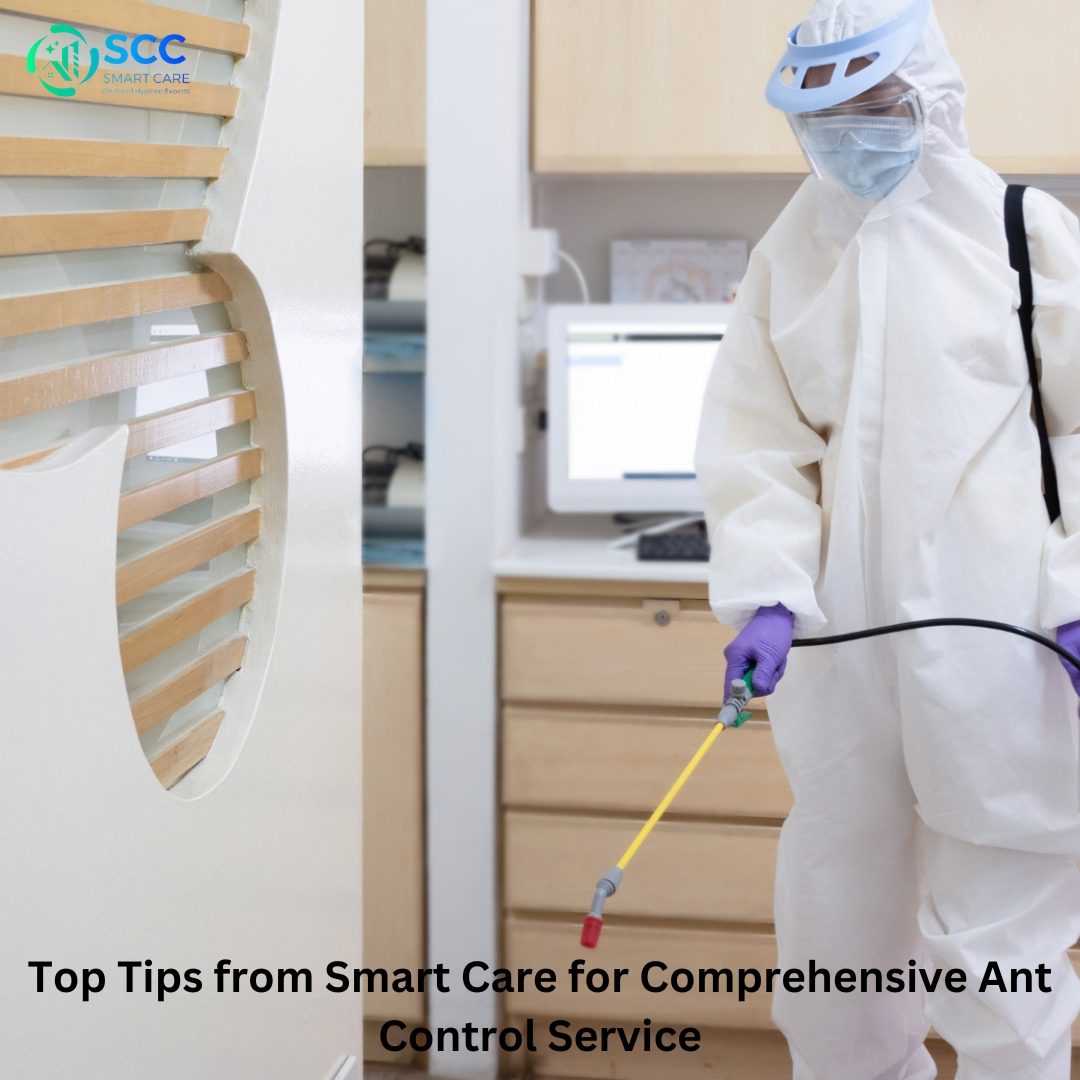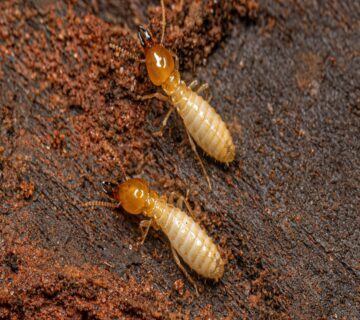Ant infestations are a common problem that many homeowners face. Effective ant control requires a thorough understanding of ant behavior and the implementation of strategic measures to eliminate them. At Smart Care, we pride ourselves on offering comprehensive ant control service designed to eradicate ant infestations and prevent future occurrences. Here are our top tips for achieving and maintaining a pest-free home.
Understanding Ant Behavior
Ants are social insects that live in colonies. Understanding their behavior is crucial for effective control. Ant colonies consist of queens, workers, and males. The queen’s role is to reproduce, while worker ants forage for food and maintain the nest. By understanding these roles, we can target our control measures more effectively.
Identifying the Type of Ants
Different ant species require different control strategies. Common types of ants include carpenter ants, odorous house ants, and pavement ants. Identifying the species infesting your home helps in choosing the appropriate treatment method. Carpenter ants, for instance, require different treatment compared to odorous house ants due to their nesting habits and the damage they can cause to wooden structures.
Inspection and Detection
A thorough inspection is the first step in any effective ant control service program. Look for signs of ant activity such as trails, nests, and entry points. Pay close attention to areas where ants are likely to find food and water, such as kitchens and bathrooms. Identifying the source of the infestation is crucial for targeted treatment.
Eliminating Food and Water Sources
Ants are attracted to food and water. By eliminating these sources, you can make your home less attractive to them. Keep your kitchen clean, store food in airtight containers, and promptly clean up spills and crumbs. Fix any leaks and ensure that there is no standing water in or around your home.
Sealing Entry Points
Prevent ants from entering your home by sealing cracks and crevices around windows, doors, and foundations. Use caulk to seal gaps and install weather stripping around doors and windows. This not only helps in ant control but also improves the overall energy efficiency of your home.
Using Baits and Traps
Baits are one of the most effective ways to control ants. Place ant baits near trails and entry points. The worker ants will carry the bait back to the colony, where it will be shared with the queen and other ants, leading to the elimination of the entire colony. Be patient, as baits can take several days to weeks to work.
Chemical Treatments
In some cases, chemical treatments may be necessary. Use insecticides labeled for ant control and apply them according to the manufacturer’s instructions. Focus on areas where ants are entering your home and where nests are located. For severe infestations, consider hiring a professional pest control service.
Natural Remedies
For those who prefer eco-friendly solutions, there are several natural remedies that can be effective against ants. These include diatomaceous earth, vinegar, and essential oils such as peppermint and tea tree oil. While these methods may not be as immediately effective as chemical treatments, they can be a good option for preventing and controlling minor infestations.

Regular Maintenance
Preventing ant infestations is an ongoing process. Regular maintenance and monitoring are essential. Conduct periodic inspections, keep your home clean, and address any new entry points or sources of food and water. Consistent efforts will help keep your home ant-free.
Professional Ant Control Service
For persistent or severe infestations, professional ant control service are often the best solution. At Smart Care, our experienced technicians use the latest techniques and products to effectively control ant populations. We offer customized treatment plans based on the specific needs of your home and the type of ant infestation.
Common Mistakes to Avoid in Ant Control
While taking measures to control ants, it’s important to avoid common mistakes that can undermine your efforts. Here are some pitfalls to watch out for:
1. Using Inappropriate Products
Not all ant control products are created equal. Using the wrong type of product can be ineffective or even worsen the problem. Always select products specifically designed for the type of ant you are dealing with. Additionally, follow the manufacturer’s instructions carefully to ensure proper application.
2. Inconsistent Treatment
Inconsistent or incomplete treatment is one of the main reasons why ant infestations persist. Ant control requires a comprehensive approach, addressing not just the ants you see but the entire colony. Ensure that you treat all areas where ants are active and follow up regularly to maintain control.
3. Ignoring the Nest
Killing individual ants or small groups will not solve the problem if the nest remains intact. The queen must be eliminated to effectively control the colony. This often requires targeted treatment at the nest site, which can be challenging to locate. Professional pest control services can help identify and treat nests effectively.
4. Overlooking Hygiene
Ants are attracted to food and water sources. Neglecting to maintain good hygiene can provide ants with the resources they need to thrive. Regularly clean your home, especially kitchen and dining areas, and ensure that all food is stored properly. Promptly clean up spills and dispose of garbage regularly.
Integrated Pest Management (IPM) for Ant Control
Integrated Pest Management (IPM) is an effective and environmentally sensitive approach to pest control. IPM combines multiple strategies to manage pests in the most efficient and least hazardous manner. Here’s how IPM can be applied to ant control:
1. Monitoring and Identification
Regular monitoring is a key component of IPM. Keep track of ant activity, identify the species involved, and assess the severity of the infestation. Accurate identification is crucial for selecting the most effective control methods.
2. Preventive Measures
Implement preventive measures to make your home less attractive to ants. This includes maintaining cleanliness, sealing entry points, and eliminating food and water sources. Prevention is often more effective and sustainable than reactive treatments.
3. Threshold Levels
Determine acceptable pest levels before deciding on control measures. Not all ant sightings require aggressive treatment. By establishing threshold levels, you can prioritize efforts and minimize unnecessary pesticide use.
4. Control Methods
IPM emphasizes the use of multiple control methods. This may include physical barriers, biological controls, and chemical treatments. The goal is to use the least harmful methods first and escalate only if necessary.
5. Evaluation and Adjustment
Regularly evaluate the effectiveness of your ant control efforts and adjust your strategies as needed. Continuous improvement is a core principle of IPM, ensuring that your methods remain effective over time.
Advanced Ant Control Techniques
For particularly stubborn infestations, advanced techniques may be required. Here are some options to consider:
1. Baiting Systems
Baiting systems can be highly effective for large or hidden colonies. These systems use slow-acting insecticides that ants carry back to the nest, eventually killing the entire colony. Professional pest control services can provide and manage these systems for optimal results.
2. Perimeter Treatments
Treating the perimeter of your home can create a barrier that prevents ants from entering. Apply insecticides around the foundation, windows, doors, and other potential entry points. This approach can be particularly effective in conjunction with other control methods.
3. Biological Controls
Biological controls involve using natural predators or pathogens to control ant populations. This can include introducing certain nematodes or fungi that specifically target ants. While still an emerging field, biological controls offer a promising eco-friendly alternative to traditional pesticides.
Educating and Involving Household Members
Ant control service is most effective when everyone in the household is involved and educated. Here are some tips for fostering cooperation:
1. Awareness Programs
Educate family members about the importance of cleanliness and preventive measures. Awareness programs can include simple presentations or informational handouts detailing best practices for avoiding ant infestations.
2. Assign Responsibilities
Assign specific tasks to different household members to ensure that preventive measures are consistently followed. This can include duties like sealing food containers, cleaning up spills immediately, and monitoring for signs of ant activity.
3. Regular Check-Ins
Hold regular check-ins to assess the effectiveness of your ant control efforts and to ensure that everyone is adhering to the agreed-upon measures. These meetings can help reinforce good habits and allow for the timely identification and correction of any lapses.
Conclusion
Effective ant control requires a combination of identification, prevention, and treatment strategies. By understanding ant behavior, eliminating food and water sources, sealing entry points, and using appropriate treatments, you can achieve and maintain a pest-free home. For comprehensive ant control service, trust the experts at Smart Care to provide effective solutions tailored to your needs.





